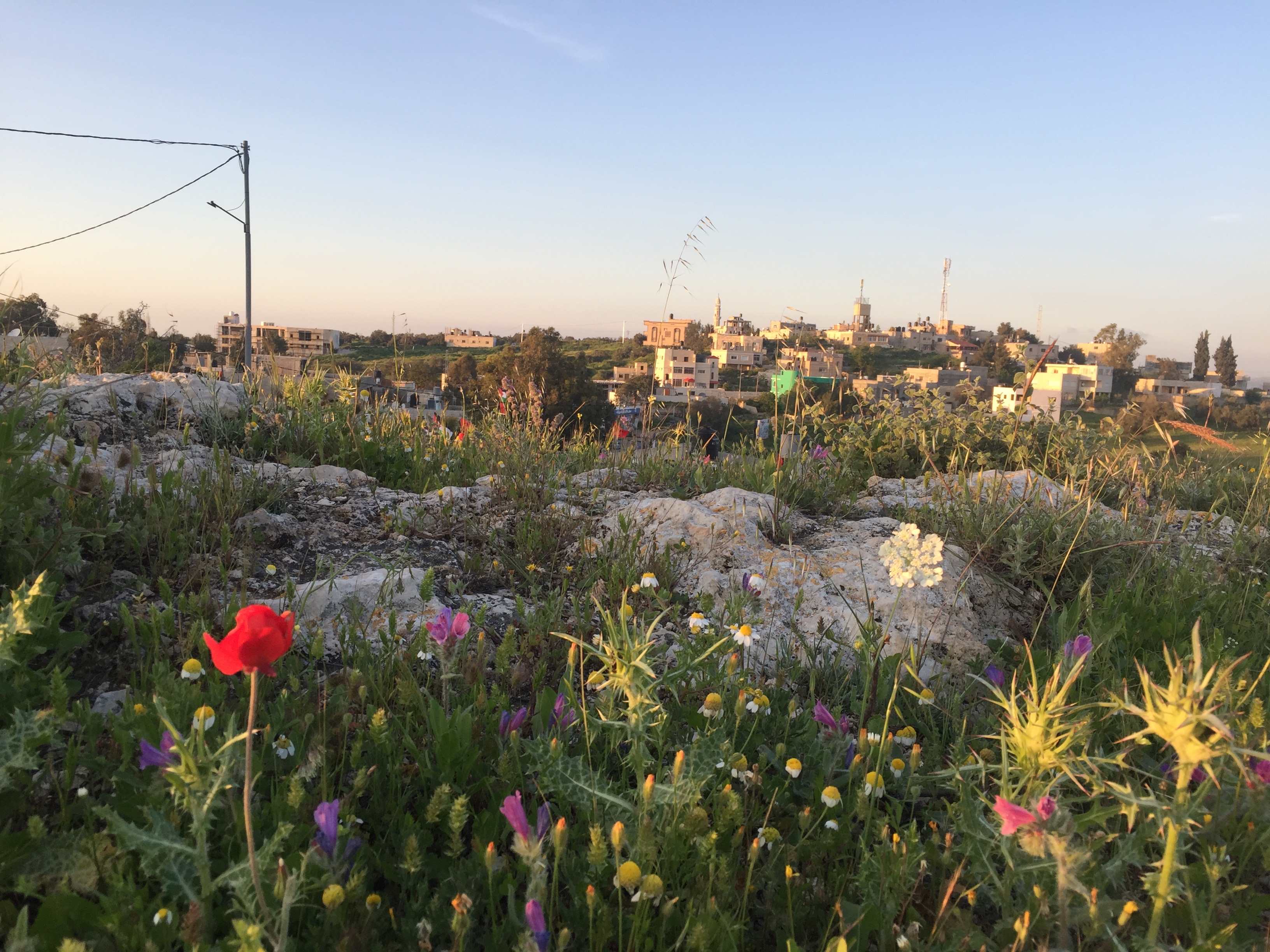On Thursday we met another Israeli citizen who had struggled with his conscience to eventually oppose the occupation. As we drove through Jerusalem with Dan Owen from the Israeli Committee Against House Demolitions he told us of his time as a soldier in the IDF, then gradually losing friends as his views changed. He spoke of an ‘ongoing Nakba’ and his tour focused on widespread demolition of Palestinian houses in East Jerusalem and beyond.
Though one building that would be in no danger of being demolished was the proposed site of the American Consulate, which will be controversially moved to Jerusalem after Donald Trump recognised this ancient city as the capital of Israel.
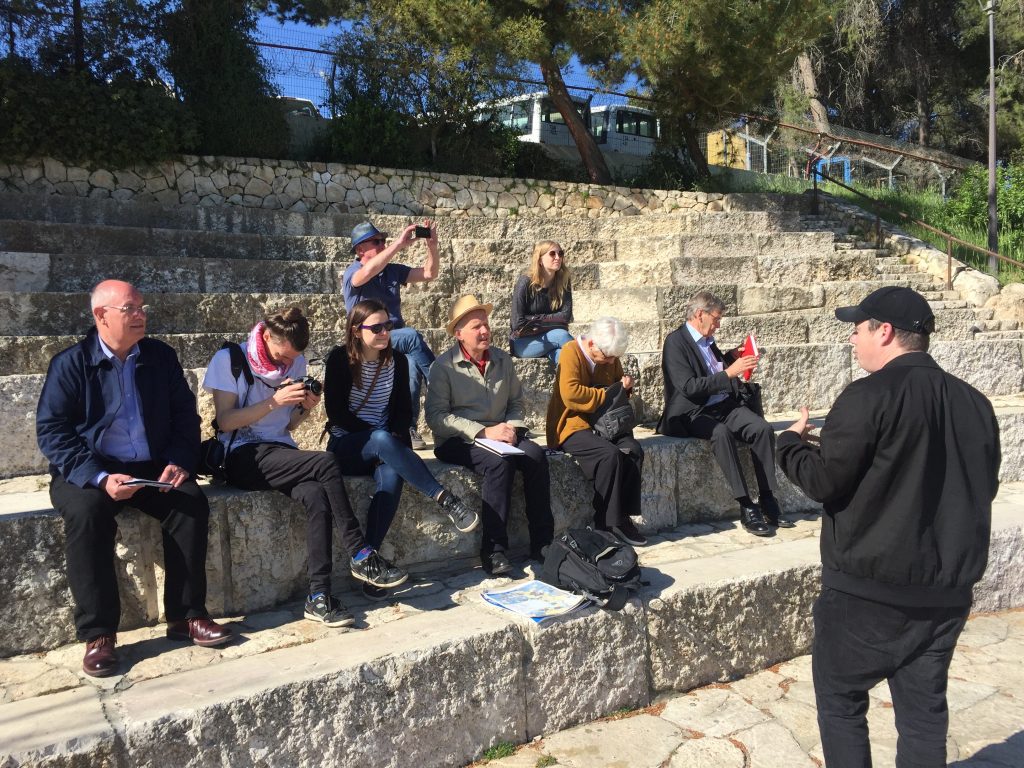
Dan took us to a hill above the city to get an overview of the Jewish and Palestinian areas, explaining that 40% had been seized for Israeli dwellings after the six-day war of 1967. The opportunity to provide affordable housing in the Jerusalem area was crucial for the State of Israel as they sought to centre the country around a city with great spiritual significance for people of the Jewish faith. Of course, Jerusalem is spiritually significant for Palestinians too, both Christian and Muslim.
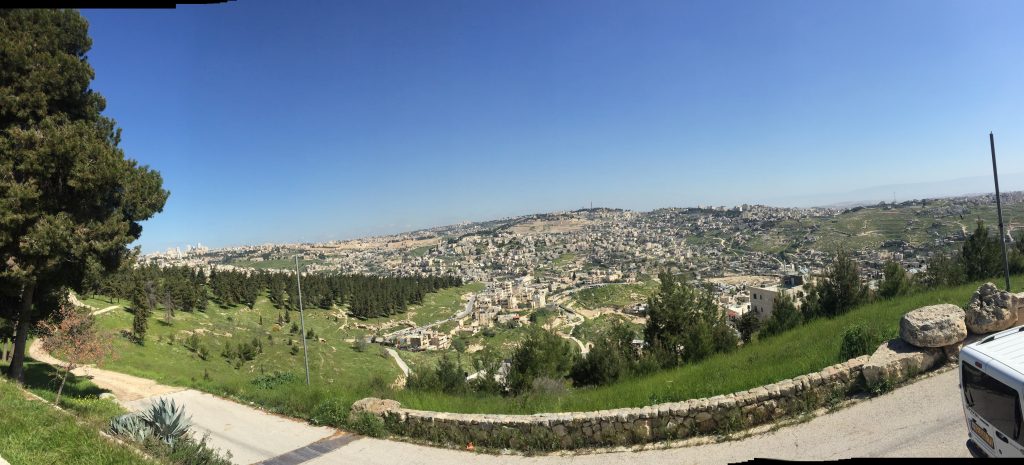
Dan himself was brought up in a settlement outside Jerusalem, not that he was aware of that at the time. As a child he had no concept of the divisions that are so apparent in his tour.
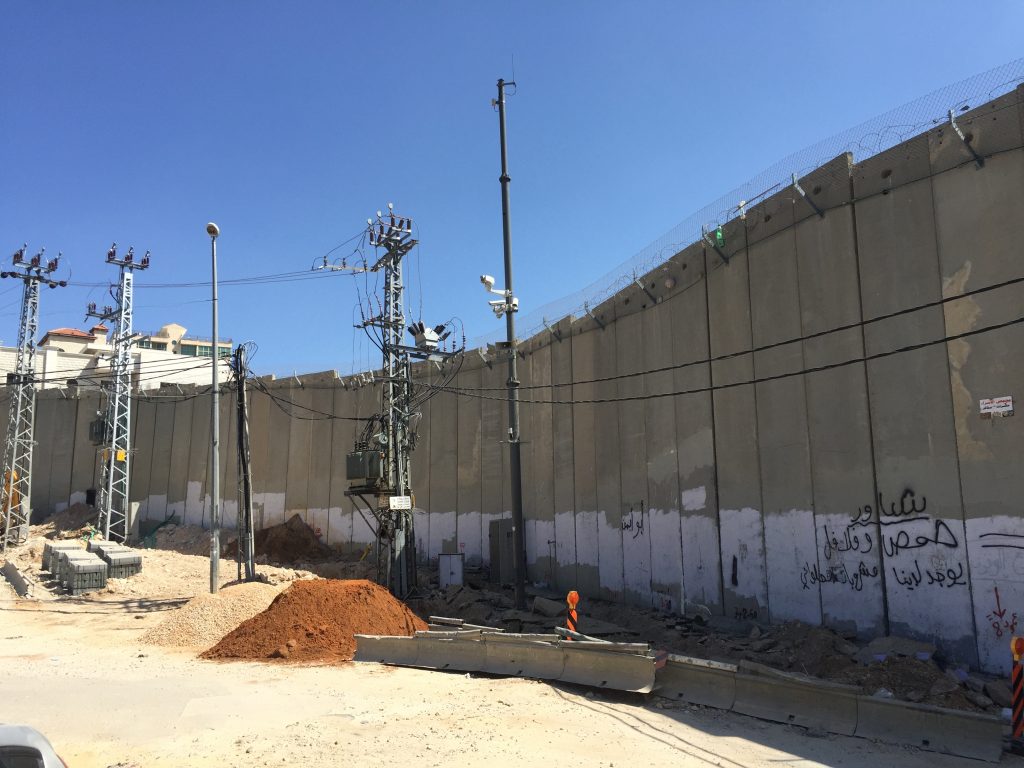
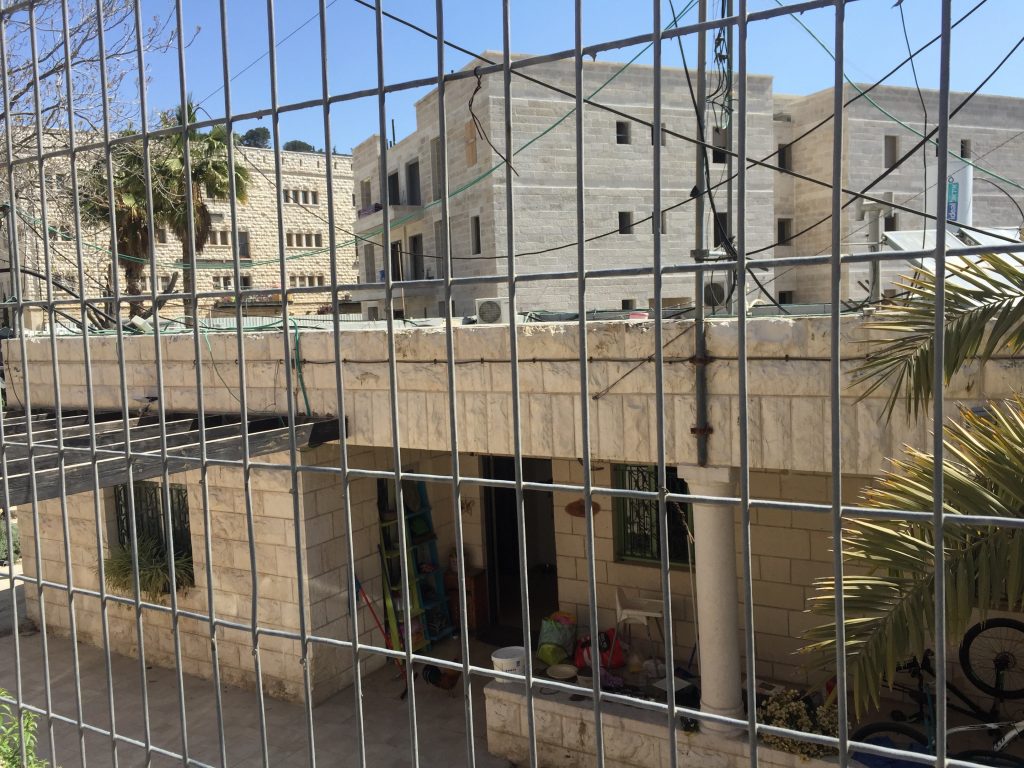
We travel through this patchwork of intricate division. The separation wall looms large in areas like Abu Dis, where Palestinian residents are cut off from Jerusalem and even from their local hospital. Now they have to travel to Jericho for treatment or apply for a permit to visit a hospital in Jerusalem. Elsewhere the separation is more mundane. A settlement gives way to a Palestinian neighbourhood and as it does so the pavement abruptly stops. An illustration that resources for the Israeli areas are significantly better. Then we see the black water tanks perched on top of every Palestinian block, a fact of life for Arabs, who cannot get a constant water supply from the Municipality. Compare that to the swimming pools and water features of the nearby settlement, Ma’ale Adumim, where water shortages are few and far between.

From Jerusalem we travelled north to Ramallah, the capital of the Occupied Palestinian Territory in the West Bank. Driving alongside the separation wall, past Palestinian villages, closely flanked by settlements we get a sense of how divided Palestine has become.
Once in Ramallah we would hear more about those villages and the challenges that face Palestinian families who live close to a settlement. We met Gerard Horton and Salwah Duaibis from another NGO, Military Court Watch. Gerard described the bleak situation that faces Palestinian youth in the villages close to settlements in the West Bank. 700 to 1000 youths are arrested each year, typically they are around 17 years of age with 97% of these arrests occurring close to a settlement. ‘Taking the fight to the Palestinians’ was the familiar phrase Gerard used to describe the policy of aggression that the IDF adopt to those they deem potential security threats.
He related the first-hand accounts he had heard from children taken from their homes in the middle of the night, blindfolded to soften them up for interrogation, their right to silence and representation rarely respected. The arrested children are often advised to plead guilty, so they will only serve 6 months in prison.
Of course, this has a destabilising effect on family life with parents living in fear of their children being taken away at any moment. For every child arrested the parents are fined up to 10,000 shekels, another level of stress that contributes to a demoralised population. One village in the West Bank was raided 16 times in a year.

That afternoon we met the Tamimi family of Nabi Saleh, who had experienced more than their fair share of this intimidation. They had however, offered resistance with dignity and invention. Nabi Saleh is a village of 600 people, which neighbours the Israeli settlement of Halamish. In 1976 the Israeli High Court had ruled the building of a settlement illegal but building went ahead anyway. Halamish has since expanded, which took away a small spring from the village, so the villagers started their weekly protests. Like many villages across the West Bank the Friday protests have become flashpoints for conflict with the IDF, who have used rubber and metal bullets, tear gas, pepper spray and skunk water against the protesters.
But the Tamimi family have a powerful weapon against this harassment: their cameras. Bilal Tamimi has been arrested many times for filming the harassment that his village suffers. But his persistance has resulted in his own ‘YouTube’ channel, which bears powerful witness to the abuses his village has suffered.
In a similar fashion Bilal’s 13-year old neice, Janna Tamimi, who is commonly know as Jihad Janna has brought the situation to her 300,000 followers on FaceBook. At the age of 11 Janna became the youngest accredited journalist in the world and regularly films and streams the weekly protests in the village. She speaks informatively and confidently but the trauma is quite apparent. Janna was interrogated for 4 hours just after her 12thbirthday and has already seen friends die. We see a video of settlers shooting at children as Janna tries to sum up why she takes the risk of filming and sharing her material. “I want to send a message to the whole world. We are losing our childhood.”
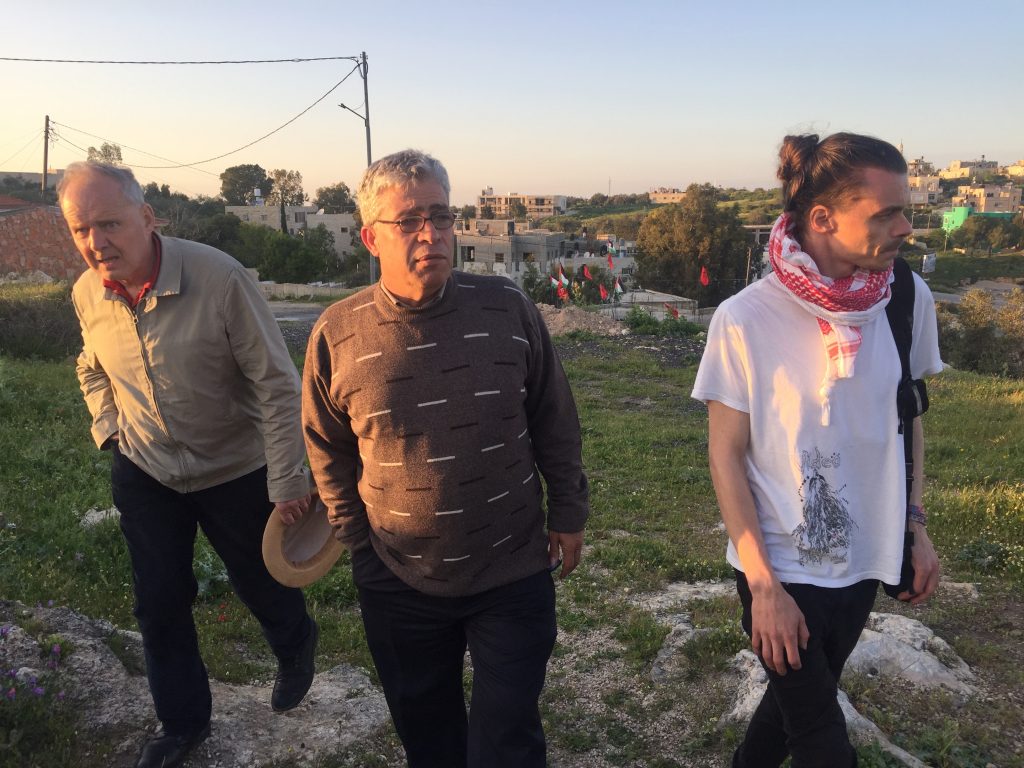

Just before twilight we take a walk through the village with Bilal and his son. Usama Tamimi was also tortured and held in an Israeli prison. We walk to the side of of a hill where can see the spring being guarded by soldiers. Palestinian flags fly above the houses here. Over in Halamish the Star of David. It is hard to look beyond the tension and see what is, superficially, a beautiful valley in the holy land.
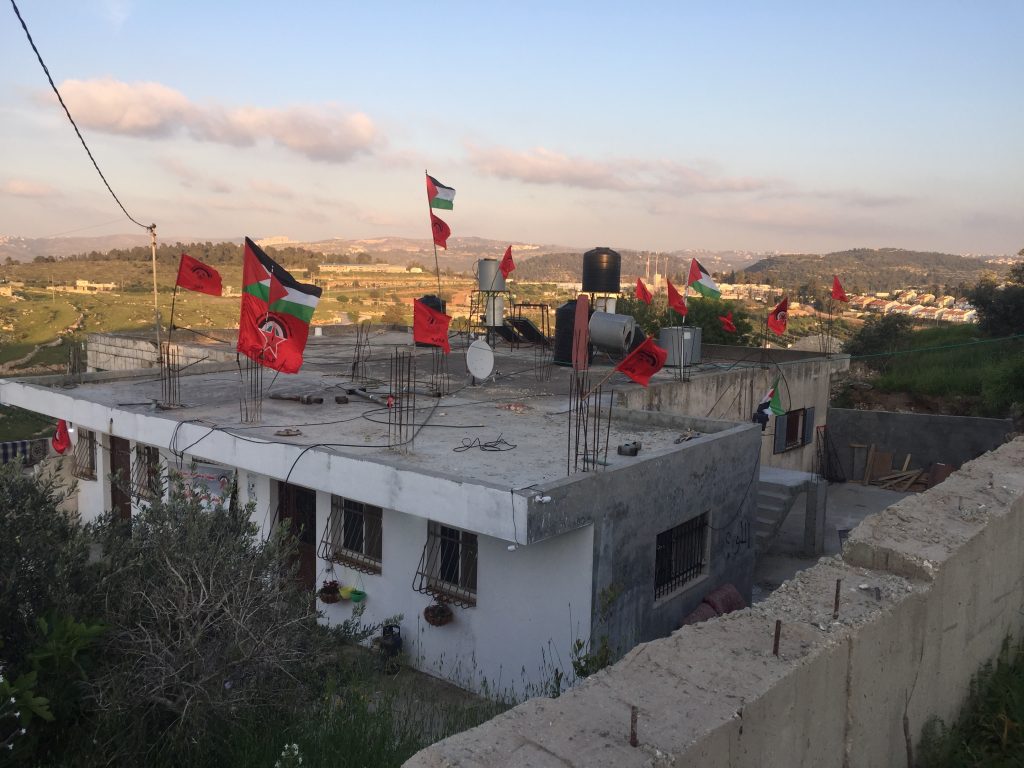
A phrase comes to mind. In 1896 Theodor Herzl, now seen as the father of modern Zionism, published ‘The Jewish State’, which was hugely influential. Soon after Herzl convened the First Zionist Congress in Basel, Switzerland. It was decided to send a two-man delegation to Palestine on a fact-finding mission. They soon sent back word of their findings, “The bride is beautiful. But she is married to another man.”
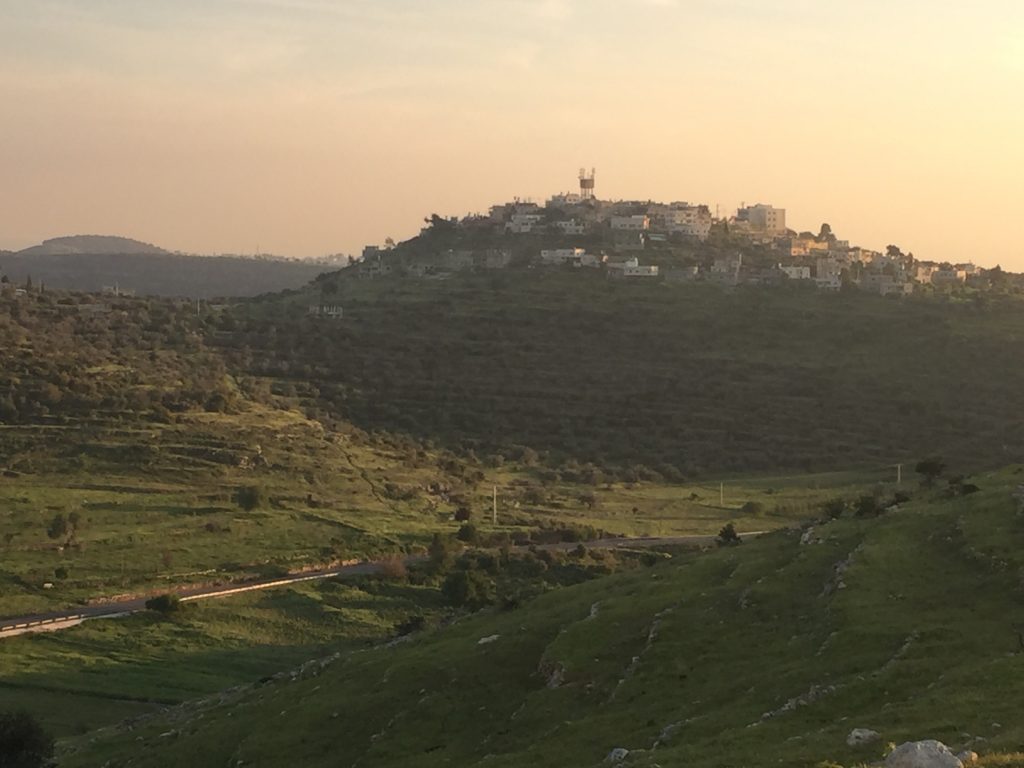
No-one can deny that the often persecuted Jewish race felt a genuine need for a homeland. But I wondered what Theodor Herzl would have thought of the broken land that we saw from the hillside by Nabi Saleh.
